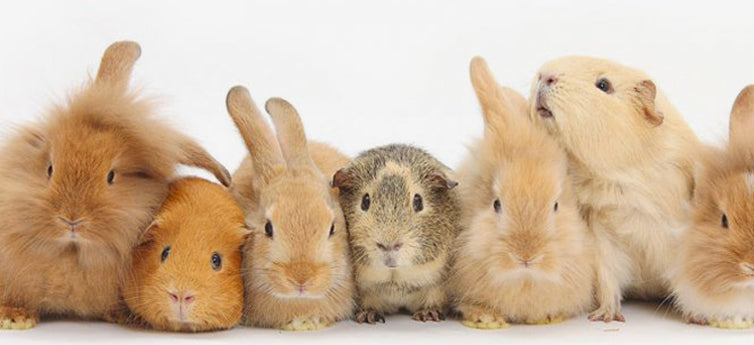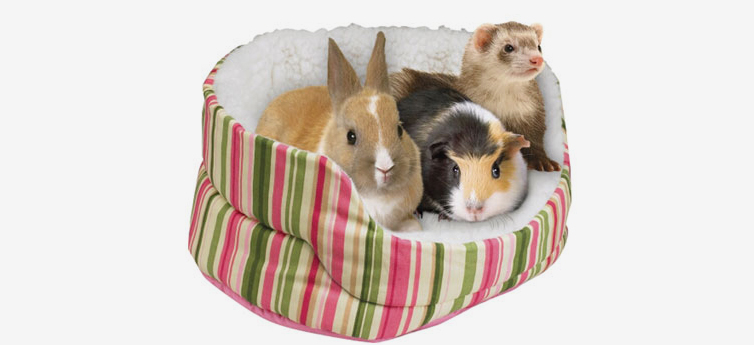Small pets like rabbits, hamsters and guinea pigs love to chew. And as a matter of fact, it is something which they cannot do without as their teeth never cease to grow! Therefore, chewing is a need and the small pets would find any means to satisfy it, but by having some control over this habit you can ensure safety to both your pet and your material assets. This piece of writing is an effort to guide you on how to manage the chewing tendency of your small furry companions.
Teeth keep growing because
For rodents like hamsters, guinea pigs, rats and gerbils their teeth are their primary action tools. In the wild, rodents build their homes; chew the obstacles blocking their path and forage for food with the help of their ever growing teeth. Their teeth keep growing naturally to put up with all the wear and tear that their lifestyle necessitates. These animals also eat foods like grass and bark-covered sticks which wear their teeth down.
When the rodents are nurtured as pets, the ever so cooperative teeth don’t really get that kind of occupation. But the issue is that whether they use it or not the teeth keep growing. Mainly it’s the incisors which continue to grow; they need to be worn down to normal size so that they don’t become dangerous to the small animal. Besides causing infections and other oral troubles, the unkept incisors can also pierce the skull of a rodent.
Now you know that small pets’ chewing is a natural thing essential for their healthy existence. Hence they will chew whatever they may find. They may chew an electric wire, the wire mesh of their cage, treated wood, house plants (many of them can be toxic to the pet), household chemicals, fresh wood from fruit trees, your personal or material belongings, and other hazardous or damaging materials.
Being innate there is no way the pets can disassociate themselves from it. But you, as a responsible pet parent, can devise ways of discouraging your pet from unhealthy and destructive chewing.
Bring discipline through training
The small pets, especially rabbits, can be taught to refrain from chewing the wrong stuff. They might never get it in their minds perfectly, but constant instructions would definitely bring a check on the chewing behaviour. Rabbits are larger in size as compared to other small pets, which makes them more destructive.
- A little Scolding
Every time you see your small animal chewing on something he is not supposed to chew, clap loudly and say ‘No’! That is enough to send sudden shock into the pet, making it halt its chewing for the present time. But it’s not a very effective way to bring long-term changes. Also, if done for a long time it would unnecessarily stress your dear pet. Make sure that you startle your rabbit or any other small pet only when they indulge in damaging chewing and not at any other time.
- Positive reinforcement
Give safe and healthy chewing options like small pets’ chew toys, sticks, etc. to the pet, and when the small pet chews on them reward it with kind words and some treat. Gradually, it would seep into the mind of the pet that chewing some specific things is more beneficial than chewing on furniture or wire.
What determines the Chewing Intensity of Small Pets
The intensity of chewing may vary from one individual to another. Like in rabbits, for example -
- Females are, generally more inclined towards chewing than males;
- Younger ones have more energy, and hence more likely to be active chewers;
- Sprayed or neutered rabbits may experience reduced desire to chew;
- Certain personality types, like inquisitive, smart and energetic bunnies are prone to active chewing; and so on.
However, always bear in mind that chewing is a normal and essential activity for small pets, and hence should be properly supported for their good health and happiness.


